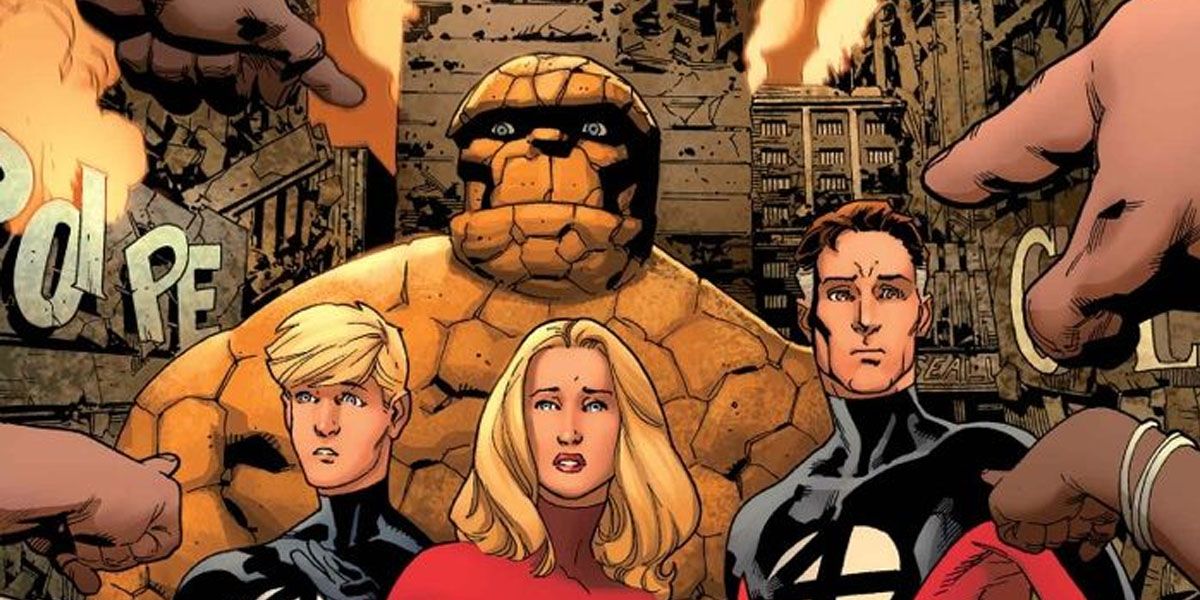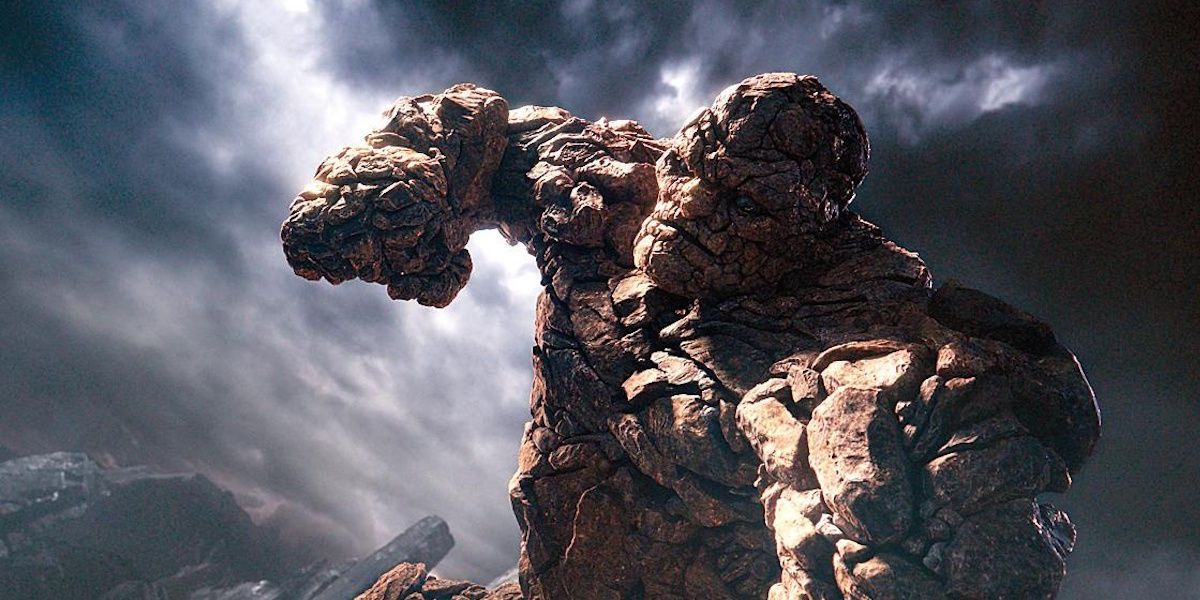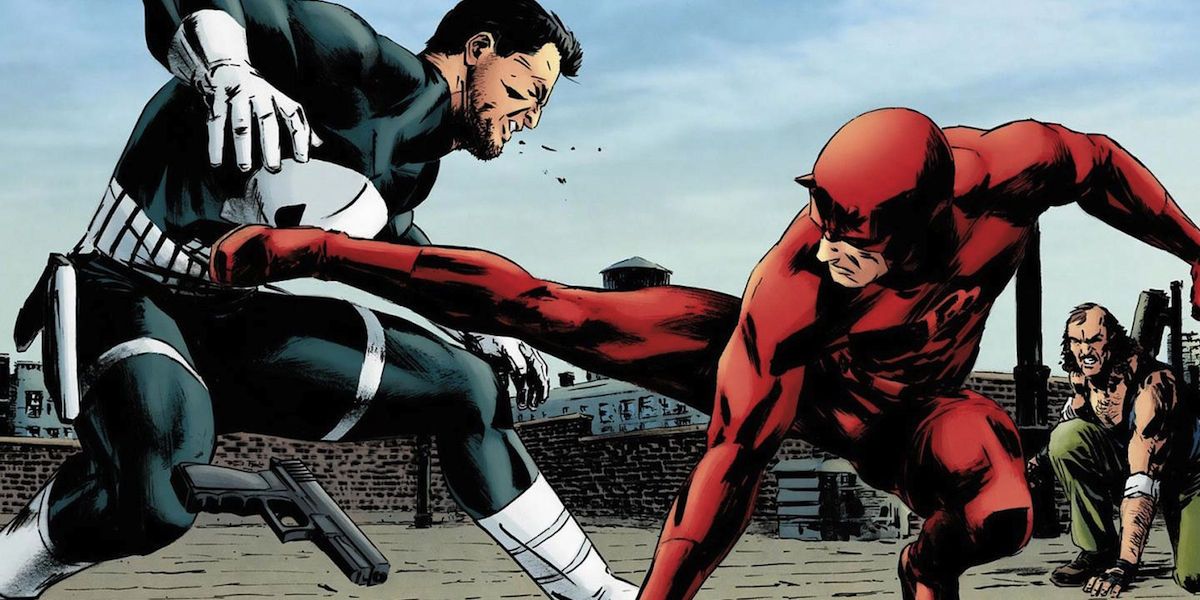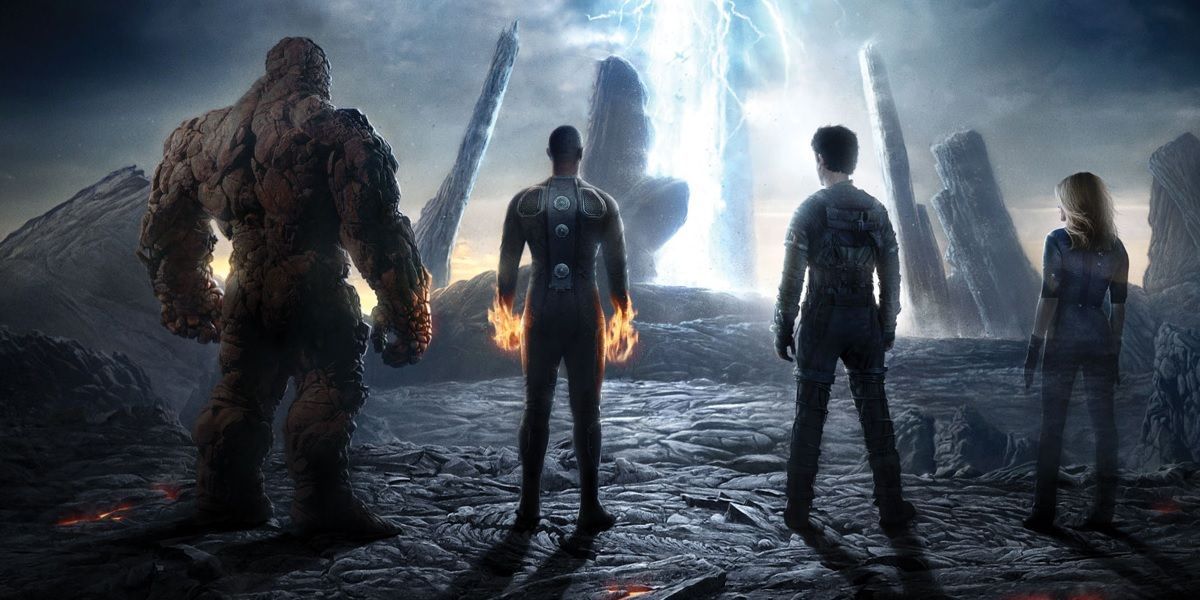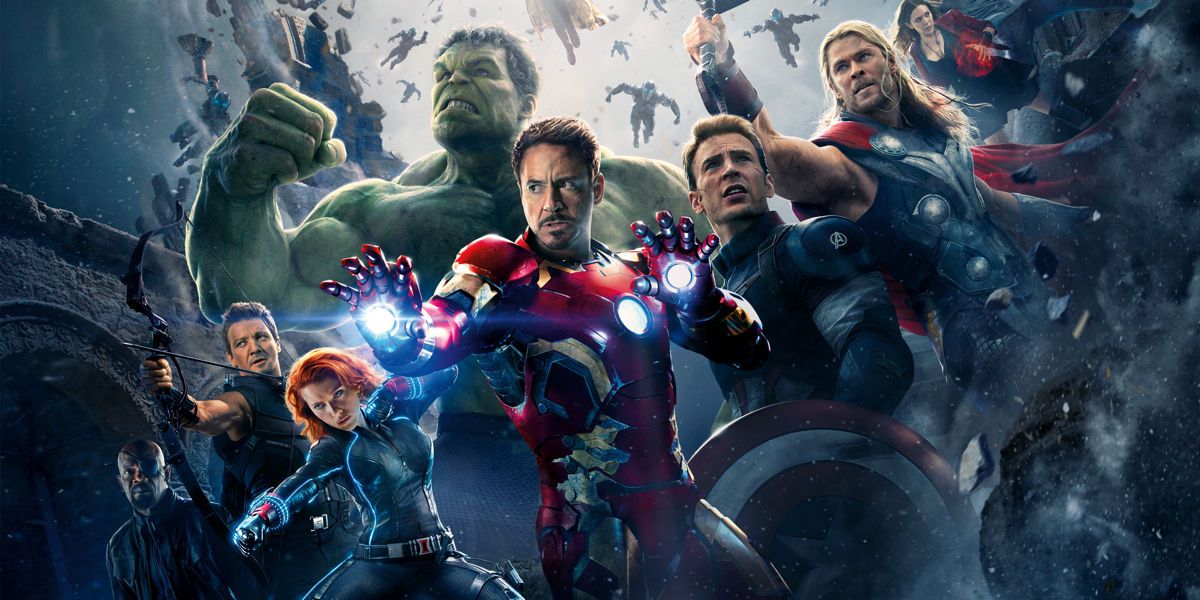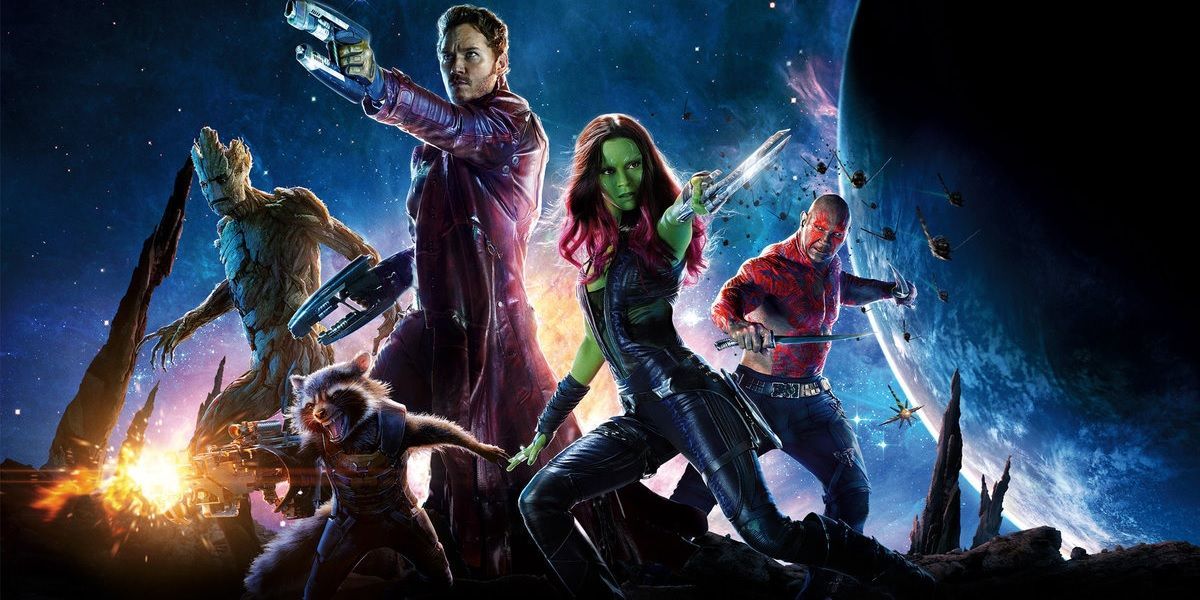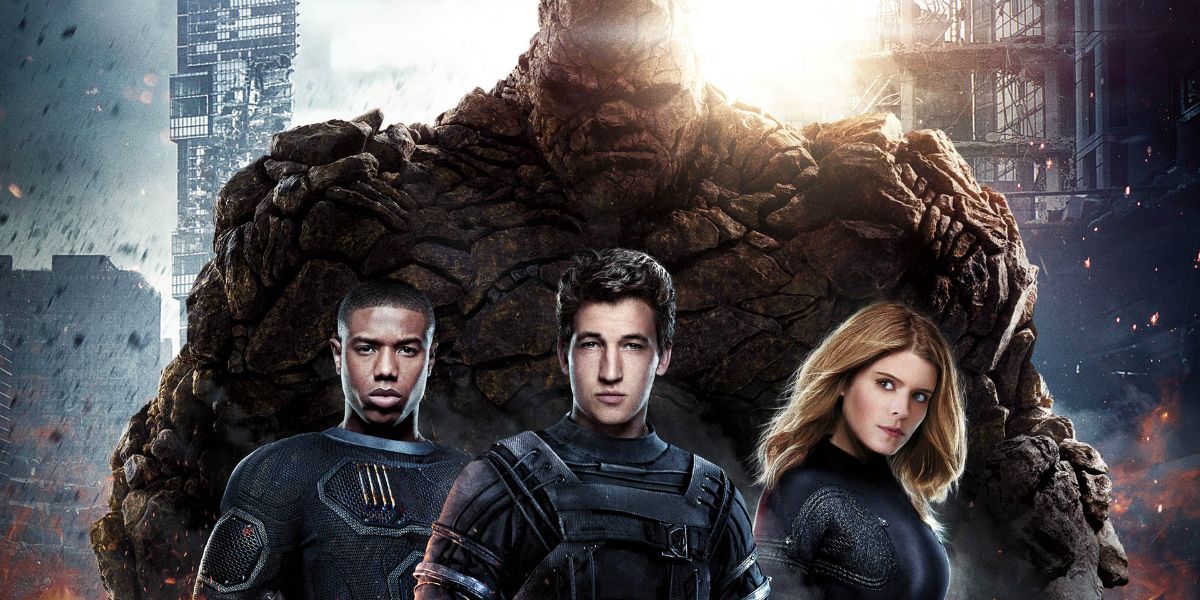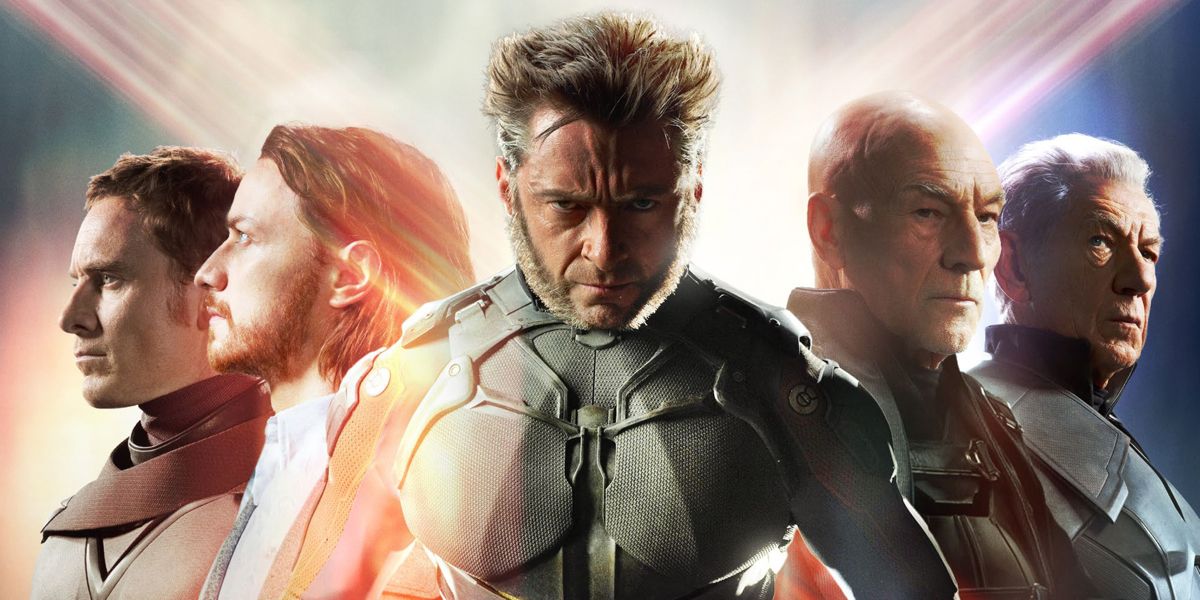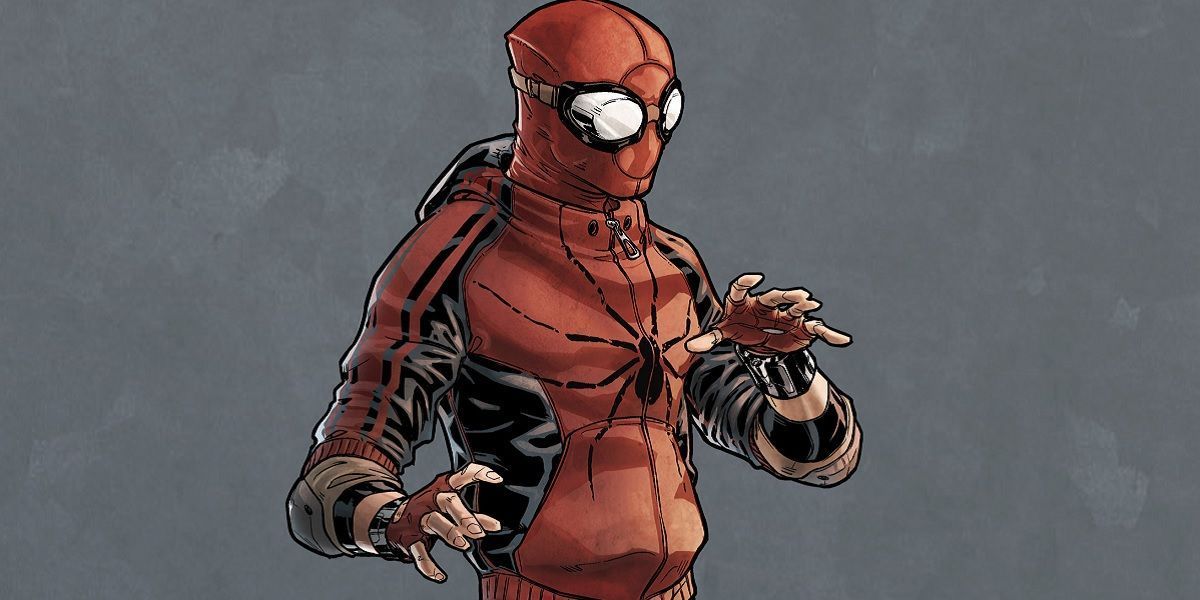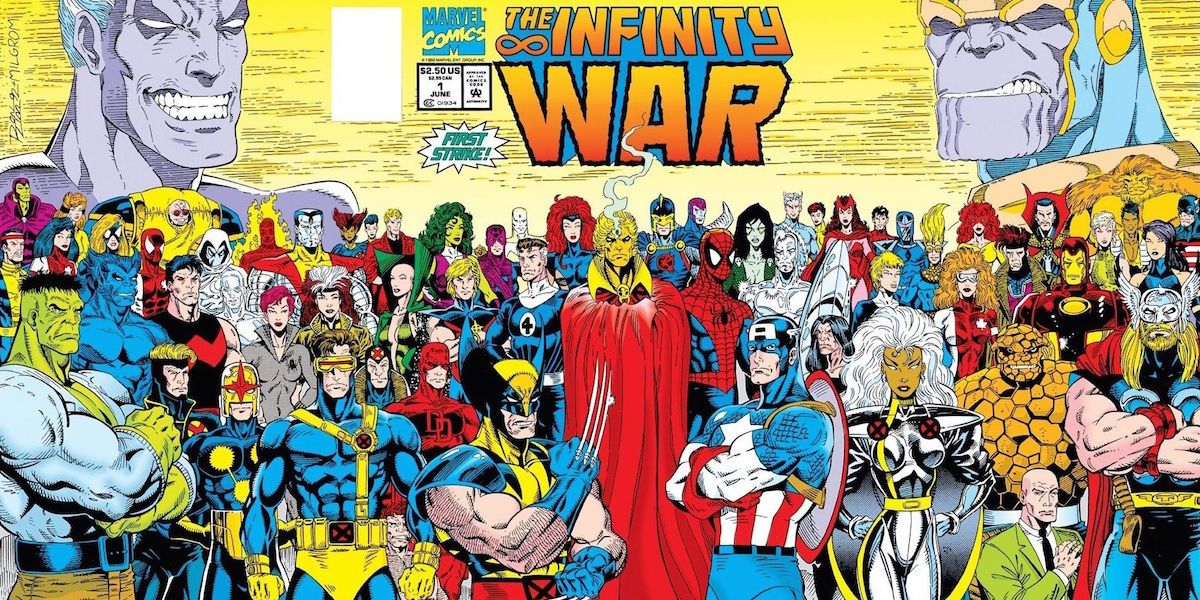Following the success of X-Men: First Class (and later Days of Future Past), which reinvigorated 20th Century Fox's mutant movie brand to compete with Marvel and DC's modern shared comic book universes, it was no surprise to hear that the studio was developing a new take on their other superhero film franchise Fantastic Four. Despite mixed (to-negative) reviews, Tim Story’s Fantastic Four movies performed well-enough, earning 20th Century Fox over $500 million at the global box office on a $230 million investment - meaning that while Fantastic Four wasn't likely to challenge The Avengers or upcoming Batman V Superman for box office records, there was still plenty of potential for an above-average return on production costs.
Unfortunately, creative differences between director Josh Trank and 20th Century Fox resulted in a bizarre reboot that, after a promising first act, takes a drastic shift midway through, descends into generic comic book movie cliche, and limps in with an underwhelming finale (read our Fantastic Four review).
Thanks to global ticket buyers, where many viewers will be more more forgiving than domestic cinephiles (who get to choose from three new studio releases a week), it's possible that Trank's film won't be a total failure for the studio - and might eve recoup its money. Still, after Days of Future Past pulled in $750 million, is a risky property like Fantastic Four even worth the studio's time and money anymore?
After two decades at Fox, is it finally time for the studio to sell Fantastic Four back to Marvel Studios?
Fantastic History and Who Owns What
Unlike DC Comics characters, all of which are owned by Warner Bros. and can appear in the same film universe, Marvel movie rights are spread across several studios. In the 1980s a cash-strapped Marvel sold the film rights to many of its most beloved characters, long before superhero films were box office record-breakers, including Spider-Man (first licensed to Cannon Films), Blade (at New Line Cinema) and X-Men (20th Century Fox). Under the creative hand of director Bryan Singer, X-Men established a new framework for comic book movies - one that both fans and casual moviegoers could enjoy. The success of X-Men and, shortly after, Columbia Pictures' Spider-Man, paved the way for a steady stream of superhero adaptations - including Tim Story's 2005 Fantastic Four movie (starring Ioan Gruffudd, Michael Chiklis, Chris Evans, and Jessica Alba) as well as its sequel Rise of the Silver Surfer (with Doug Jones in the titular role).
Many of Marvel's initial licensing agreements include a sunset clause which prevents rights holders from sitting on a particular character or story too long. Specifically, if the studio can't or won't make a franchise film within a specific time window, subsequent character rights revert back to Marvel. Over time, certain studios have allowed particular rights to expire (which is why Punisher can now appear in the Daredevil TV series) and, in that time, Marvel Studios has reacquired licensing rights to most of its characters.
After The Amazing Spider-Man 2 dashed Sony's plans for a shared universe centered on the wall crawler and his Sinister Six adversaries, the studio worked out a joint partnership with Marvel Studios - to bring Peter Parker into the Marvel Cinematic Universe without entirely handing over the character's film rights. A few other Marvel properties exist in a grey middle-ground (such as Quicksilver, Scarlet Witch, and Namor), but most are now either owned by Marvel or fully-licensed to non-Marvel studios: Man-Thing (Lionsgate Entertainment), the X-Men and related mutant characters (20th Century Fox), as well as the Fantastic Four (20th Century Fox) and support characters (such as Silver Surfer).
That's all to say, even though Trank's Fantastic Four wasn't an overwhelmingly successful reboot of the franchise, Fox isn't required to hand back the team's film rights for another decade (roughly 2024).
Fans clearly aren't satisfied with the latest iteration of the characters but there are still valid reasons why the studio (as well as moviegoers) would not want Marvel to reacquire Fantastic Four's film rights.
NEXT PAGE: No Fox, No Fantastic Four?
-
No Fox, No Fantastic Four?
A regular topic of conversation on the Screen Rant podcast, it might sound counterintuitive but there is a downside to Marvel Studios owning the film rights to all of their characters - since certain heroes and villains are more bankable than others. Without question, Marvel Studios (via Disney) is a major powerhouse in Hollywood these days - with a complicated, multi-media, shared universe plan that stretches beyond 2020. However, even though the studio is signing actors to ten-plus picture contracts, Marvel still has limited resources. The highly profitable studio doesn't have a blank check to produce a new film every month and, even if they did, they'd still be at the mercy of limited industry assets (sound stages, crew members, visual effects companies, etc) that are required to actually take a movie from script form to the big screen.
Additionally, should Marvel manage to outbid all other competitors and secure enough real estate and personnel to actually churn out a steady stream of MCU films, the studio still runs the risk of cannibalizing their own individual films and sub-brands at the box office, at home, and in merchandising. Given that Marvel is ramping up production, aiming for two or three films a year, they've yet to hit the point of over-saturation but that doesn't mean they can't overproduce.
If you accept Marvel is limited in how many movies they can make each year, then it's not a stretch to see that once certain characters start filling in available slots, even over multiple years, others will be left out in the cold. As a result, should the rights for every Marvel property suddenly land back in Disney's full control, then the studio has to start deciding which characters get a movie, which ones simply cameo in other films, and which ones are sitting on the sidelines entirely. Fantastic Four hasn't proven to be a sure-thing franchise for Fox (much less a particularly hot commodity on comic store shelves in recent years); meaning, even if Marvel Studios acquires the rights, Disney may never green light a new film based on the characters.
Conversely, it's equally possible that if characters like the Fantastic Four and the X-Men ever made it back to Marvel, then the studio would be less inclined to take risks with oddball properties like Guardians of the Galaxy. One year later, we know that Guardians of the Galaxy paid-off (and was a refreshing change of pace in the genre) but it wasn't always a risk-free hit - and there's no way of knowing, for sure, if Marvel Studios would have ever proceeded with the film if they had well-known galactic-traveling characters like the Fantastic Four available to them. Essentially, if a Fantastic Four movie ever gets a green light from Marvel Studios it will mean that some other character (or hero team) was passed-up in order to bring Reed, Sue, Johnny, and Ben back to the big screen.
For that reason, there's a significant (though often dismissed) benefit to non-Marvel studios producing films based on Marvel properties - since those films don't take away from other ideas the home team might choose to produce. Since Marvel hasn't been busy with X-Men: Apocalypse, Deadpool, and Fantastic Four, they've been able to start developing new movies and TV series (based on characters that audiences have never seen before): Doctor Strange, Black Panther, Captain Marvel, Inhumans, Jessica Jones, and Luke Cage.
That all said, between Story and Trank's Fantastic Four movies, coupled with news that Fox intends to build an entire shared universe around the X-Men, to include solo stories like Deadpool, as well as X-Force, among others spin-offs, Fantastic Four could still be better off at Marvel - even if Marvel has no plan to use the titular foursome in a solo movie any time soon.
NEXT PAGE: Fantastic Four in the Marvel Cinematic Universe?
-
Fantastic Four in the Marvel Cinematic Universe?
In the run-up to Fantastic Four's release, fans and interviewers peppered X-Men series writer and producer Simon Kinberg with questions about a possible crossover between the Fantastic Four and the Fox's bankable mutant brand. Kinberg, along with Trank and Singer, gave conflicting answers - making it clear that even if the two hero teams could crossover, there weren't any set plans (at this point). Without question, if there was a benefit to crossing the two franchises over, specifically if Fox could make more money without harming either brand, they'd find a way to make it happen. After all, with X-Men: Days of Future Past toying with time-travel and Fantastic Four opening-up alternate dimensions, it's easy to see writers wouldn't have to stretch too hard in order to explain how the two series could overlap (even if they are, for now, entirely separate).
Yet, with such a negative reaction to Fantastic Four, it's unlikely that moviegoers will be seeing the team back on the big screen in the near future - especially at the risk of poisoning a X-Men series that, after a few stumbles, is mostly back on track. As indicated, Fox will have roughly a decade to plot a new installment in the Fantastic Four franchise - either a sequel or another reboot - but, with goodwill flowing toward X-Men, and comparatively lower returns on investment for the last three Fantastic Four movies, should Fox even bother developing a new movie with the foursome for another nine years?
No doubt, they could sideline the characters and wait for an opportunity (or filmmaker) that might bring the characters back (again) but the Fantastic Four has already been waning in popularity for over a decade. It certainly hasn't helped that Marvel is actively pushing non-Marvel Studios superheroes out of the spotlight in print comics and online promotion - in order to more prominently feature characters they completely own; yet, where the X-Men and several characters within the franchise have retained interest from existing and new (younger) fans, Fantastic Four comics, merchandise, and overall brand recognition is at an all-time low - even with the new movie hitting theaters.
In response, Fox's best move may be to try and sell the Fantastic Four rights back to Marvel Studios - for a cash payout and potential cut of whatever Marvel might make off of the characters on film down the line.
The recent Spider-Man deal was mutually beneficial because both Sony and Marvel want to, and can, make a lot of money from Peter Parker. To that end, the partnership is purely an opportunity to raise the profile of the character and the films he appears in. Marvel Studios isn't paying Sony for any appearances by Spider-Man in the MCU - and neither studio will receive a box office percentage for any film, featuring Spider-Man, that is produced by the other house (read: Sony won't see any MCU ticket sale profits and Marvel won't see Spider-Man solo movie ticket sale profits).
Unlike Sony, who holds the rights to one of Marvel's most popular superheroes, but needed to breath life back into the Spider-Man franchise, there's no indication that Fantastic Four is going to increase in popularity over the next ten years - especially as the DC movie universe takes shape and Marvel Studios Phase 3 kicks into gear (introducing a whole new group of characters that can fight alongside established Avenger favorites). To that end, sitting on Fantastic Four, or trying to develop yet another brand relaunch could actually cost Fox in the long run. If they let the rights expire, they get nothing and if they invest in another unsuccessful reboot, the studio could actually lose money. Though, if they sell the rights back early - for a cut of whatever Marvel decides to do, they could see income (with no work on their end) for years to come.
For fans, the idea of sidelining the Fantastic Four at Marvel might sound like heresy but Fox hasn't exactly delivered a version of the foursome that comic book lovers (or movie viewers) can really champion. At least if Marvel owned the characters, they could slot them into other MCU films, especially given that Reed and his team play an instrumental part in several high profile Avengers storylines (including Infinity War). Further down the line, with the characters already established in the MCU, Marvel might deliver a truly great Fantastic Four movie - one that isn't burdened by worn-out origin story setup and training montages. There are plenty of great Fantastic Four storylines from the comics that can be explored (and build on the expanding MCU) but, based on prior efforts, Fox has failed to provide a successful launch pad for the team - one that would need to make the aging comic heroes relevant to modern readers and viewers.
Should Fox decide to cut a deal with Marvel and sell back the Fantastic Four rights, hopefully Marvel Studios will still continue to invest in high-risk, high-reward projects (like Guardians of the Galaxy). Given how many notable characters the studio already owns (characters that don't have their own films), it's hard to imagine the Fantastic Four will cause a major change in Marvel's future plans. Either way, with the MCU film slate established for the next half-decade, fans can at least look forward to several new heroes hitting the screen in coming years - even if Fantastic Four steals priority down the line.
Either way, in an industry where epic shared universe stories are becoming the norm, the only way to truly reinvigorate the Fantastic Four may be to hand the characters back to Marvel (and secure a cut of whatever the studio does with the heroes going forward). After all, what's worse? A supporting role for the Fantastic Four in the MCU or another failed relaunch in five or ten years?
MORE: 5 Fantastic Four Comic Stories Better than the Movies
If you’ve seen Fantastic Four and want to discuss details about the film without worrying about spoiling it for those who haven’t seen it, please head over to our Fantastic Four Spoilers Discussion. For an in-depth discussion of the film by the Screen Rant editors check back soon for our Fantastic Four episode of the SR Underground podcast.
Fantastic Four runs 100 minutes and is Rated PG-13 for sci-fi action violence, and language. Now playing in theaters.

